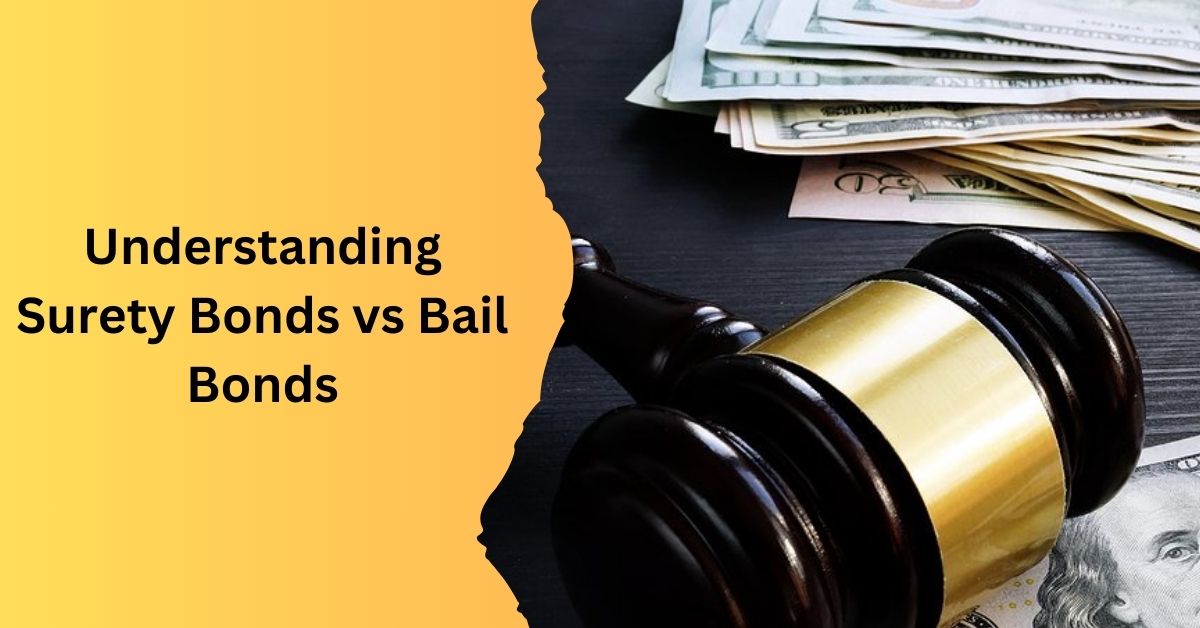In legal and financial landscapes, some people may need to learn what surety bonds and bail bonds entail. These two concepts involve bonds but serve different purposes.
Here is more information about the differences that set these bonds apart and their contributions to commerce and personal liberty:
Bail Bonds
Bail bonds are for someone who has been arrested and needs to get out of jail until their trial. The court sometimes sets bail if a defendant wants to await their court date outside of jail. This monetary amount acts as insurance that the accused person will appear at trial.
When someone is unable to raise funds for their bail, a bail bond helps because the defendant only has to pay a percentage of the amount to a bondsman.
A bail bond agent charges the defendant a percentage of the total bail amount, and they then post a bond to the court on behalf of the defendant to secure their release. The bail bond agent is responsible for confirming the defendant appears in court.
Surety Bonds
A surety bond is a three-party agreement where the principal promises to fulfill a contract. This contract involves the principal, the obligee, and the surety.
The surety, often an insurance or bonding company, acts as the financial guarantor. They verify that the principal will fulfill their obligations to the obligee.
This structure creates a system of accountability. The principal benefits from the surety’s financial backing because they engage in activities that require a bond. An obligee is assured that they will be compensated if the principal does not fulfill their obligations.
Payment Methods
The obligee makes the payment for surety bonds to the surety company. These payments can be made through checks, wire transfers, or electronic funds transfers. Some surety companies allow online payments through secure platforms.
Cash is a common and straightforward option for a bail bond. Many bail bondsmen accept credit and debit cards. Some bail bond agencies offer flexible payment plans to accommodate clients with financial constraints.
The percentage that people may pay for a bail bond is between 10% to 15% of the total bail amount. This non-refundable fee compensates for the bail bond service that the agent provides.
The percentage may be influenced by the severity of the charges and the individual’s criminal history. Once the case is over, the bond is given back.
If the defendant does not appear in court, they may have to pay the full bail amount and face further legal action. In such cases, the bail bond agent may use the defendant’s collateral to cover the financial risk associated with the bond.
Deliberations for Bail
More serious offenses often lead to higher bail amounts because the accused may pose a danger to society or may be a flight risk. In such cases, courts may set higher bail amounts to compel them to appear in court.
Those with a history of not appearing in court or facing serious charges may be subject to higher bail to compel them to appear in court. Ties to the community, employment status, and family responsibilities may also be taken into account.
Seek Reliable Bail Bonds Services
A bail bond helps defendants use the legal system to obtain temporary freedom before their court dates. Determine if a bail bond or surety bond best suits your needs before hiring the services of a bondsman. Learn what percentage you must pay your local bondsman, the bail amount, and any factors influencing the bail payment process. Contact a professional bail bondsman today to get help with posting bail or to learn more about this process.










